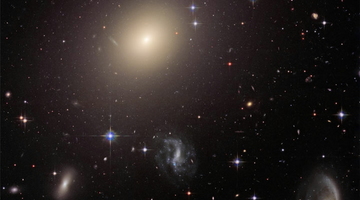Will we ever see life on planets outside our Solar System1? The late Professor Denis Sullivan (1942-2019), from Victoria University of Wellington, suggests that we may never know for sure.
Transcript
PROF DENIS SULIVAN
Science is about why and a fundamental question really is, “Are we unique?” Anybody who thinks about it will want to know some answers. If we are unique that would be a surprise because there are so many stars, so many galaxies, so just trying to understand why planets form and are there enough of them to produce life?
My personal guess is we will never see such life forms. These planets around other stars are just so far away that it’s impracticable to go, so one has to be careful making predictions in science. I suspect it we’ll end up with not much more than identifying some planets around some stars that aren’t so far away and there’s definite signatures of chemicals2 in the atmosphere3 that can only produce by life, but that’s likely to be where it will stop.
Acknowledgement
NASA/JPL-Caltech



